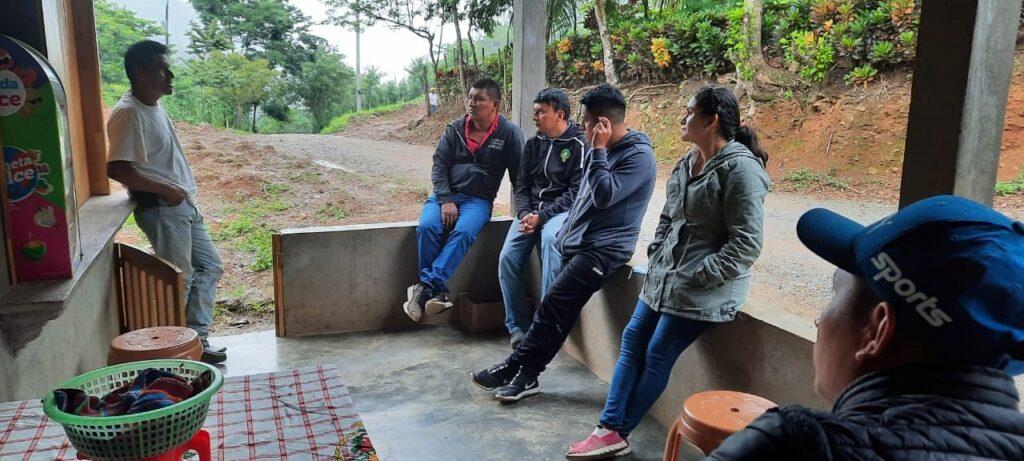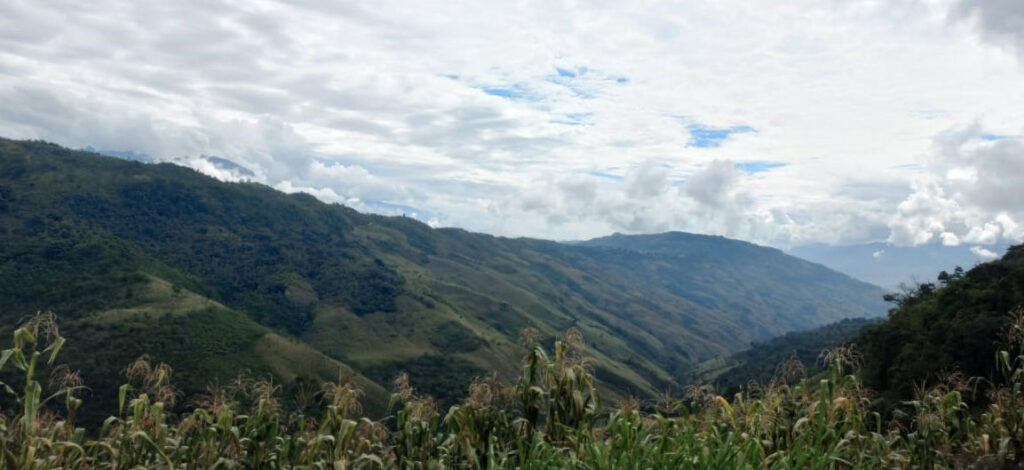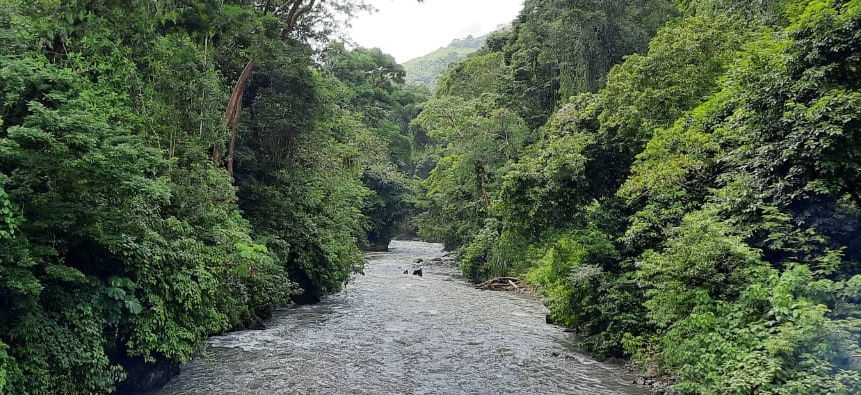A team of our Guatemalan leaders has been dreaming of reaching into more communities through Impact Ministries programs and projects. They’ve started exploring some unreached communities in the Alta Verapaz and Baja Verapaz region – communities that lack resources, education, and the Word of God.
Here’s just one community that they’ve connected with in the past months as they explore where God may be calling us as a ministry, as told by our Vida Schools Administrative Director, Jaime Cho:
One cold morning, we undertook a journey from Tactic to the remote villages of the municipality of Purulhá, Baja Verapaz – communities located in the foothills of the cloud forest mountains, about two hours by vehicle from the centre of Purulhá.
The white pick-up was bumping with difficulty along the dirt road – the constant rains had washed out the route. But the driver, Selvin, an active member of Río de Vida Church’s Purulhá congregation, drove with confidence. As a merchant who services this area, he travels these roads regularly. Selvin had already contacted a community leader to discuss the needs and obtain information about the village.
After crossing a large river via the bridge that connects to the first communities, the team reached today’s destination. They were in a community called Panimá, a name that in the Poqomchí language is written “Pan nim há,” which means “in the river.” It refers to the water that passes between the two mountains near the village. Panimá is located at the center of a microregion made up of six surrounding hamlets.
After enjoying a small breakfast of eggs in spicy sauce, tortillas and a cup of coffee, the community leader, Don Ricardo, arrived. He’s a kind man and respected by his people. With a cordial greeting, the team and the leader exchanged words of welcome and introduction, and the leadership team shared the vision of Impact Ministries and the intention of the visit.
Don Ricardo listened carefully and very kindly answered the questions that were asked about the community – questions about population, finances, work, religion, and education.

We learned that the communities are made up of inhabitants belonging to the Q’eqchí and Poqomchí people groups, the majority of whom work in agriculture in jobs such as harvesting coffee or cardamom at nearby farms. The families work for day wages, which makes their income scarce. Health care and education is limited; Panimá has a small primary school of about a hundred children, but beyond that there is only limited unassisted tele-learning, and the closest high school is located in Purulhá. Very few young people manage to graduate – they face a long commute or relocating to town, and the families simply don’t have the finances.
The meeting ended with Don Ricardo offering to bring together leaders of the surrounding hamlets and villages for a future meeting. We’ll need to share our vision with the representatives of each community and see if they wish to continue exploring the opportunities to take next steps.
In this way, the team of leaders of Impact Ministries have taken the first steps to discover possible places to broaden our ministry. Our goal is to bring the good news of salvation to more communities. Our method is to offer continuing education through the Vida Weekend Extension program and to carry out special activities such as children’s ministries, social assistance programs, short-term mission group visits and the like. Through these practical expressions of God’s love, people will be attracted to the feet of the Lord. Children and young people of the community can become disciples of Jesus, leaders who impact their village. They themselves will be that “River,” as in the name of that village – but more than that, they will immerse themselves in that River of Life that is the Lord.
Will you dream with us for a brighter future for more communities? Will you stand alongside our leaders as they reach into villages like Panimá to see where God is leading next? Join us as we build a brighter future by going deeper and broader for children in Guatemala.

